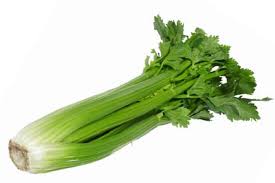
记忆方法
将“celery”分解为“cel”和“ery”。想象“cel”是“cello”,一种低音提琴,形状细长,而“ery”在视觉上可以想象为一个“tree”的细小版本,就像一根小树苗。这样,将“cello”的细长形状和“tree”的植物特征结合起来,就能形成一个生动形象的记忆,帮助记住“celery”(芹菜)这个单词。
以上内容由AI生成, 仅供参考和借鉴
中文词源
celery 芹菜
词源不详。
英语词源
- celery
-
celery: [17] Celery comes ultimately from Greek sélīnon, which signified ‘parsley’ – like the celery, a plant of the group Umbelliferae (the English word parsley comes from Greek petrōselínon, literally ‘rock parsley’). It came into English via Latin selīnon, Italian dialect selleri, and French céleri. The term celeriac was formed from celery in the early 18th century; it first appears in an advertisement in the London and country brewer 1743.
=> parsley - celery (n.)
- 1660s, from French céleri (17c., originally sceleri d'Italie), said by French sources to be from Italian (Lombard dialect) seleri (singular selero), from Late Latin selinon, from Greek selinon "parsley," which is of uncertain origin.
[O]ne day, in a weak and hungry moment, my roommate and I succumbed to a bit of larceny. A greengrocer's truck had parked down the street and was left unattended. We grabbed the first crate we could off the back. It turned out to be celery. For two days we ate nothing but celery and used up more calories chewing than we realized in energy. "Damn it," I said to my roommate, "What're we going to do? We can't starve." "That's funny," he replied. "I thought we could." [Chuck Jones, "Chuck Amuck," 1989]
权威例句
- 1. Instead of snacking on crisps and chocolate, nibble on celery or carrot.
- 不要把薯片和巧克力当零食来吃,要吃些芹菜和胡萝卜。
- 2. a stick of celery
- 一根芹菜
- 3. I have a thing around celery. I can't stand it.
- 我很讨厌芹菜, 我无法忍受它(的味道).
- 4. Chop the celery and add it to the salad.
- 把芹菜切碎放到色拉.
- 5. Caroline dug up a head of celery.
- 卡罗琳从地里挖出一棵芹菜.
